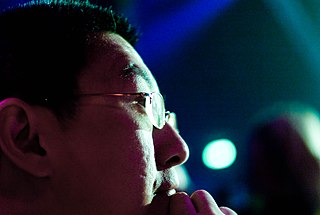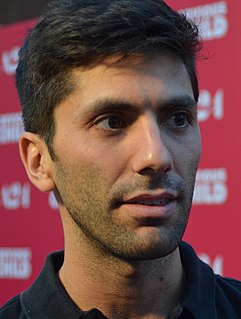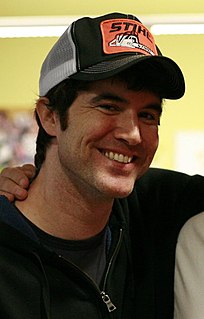A Quote by Lewis Howes
When you are seen as someone who actively communicates with new connections, it can make other online users want to connect with you.
Related Quotes
Bumble is all about community and safe, empowered connections, and the Hive represents a natural extension of our brand and our values. We love that we've given people an opportunity to connect digitally, and the Hive allows us and our users to take that to the next level in a space where connections can come to life in person.
In any new situation, whether it involves an elevator or a rocket ship, you will almost certainly be viewed in one of three ways. As a minus one: actively harmful, someone who creates problems. Or as a zero: your impact is neutral and doesn't tip the balance one way or the other. Or you'll be seen as a plus one: someone who actively adds value. Everyone wants to be a plus one, of course. But proclaiming your plus-oneness at the outset almost guarantees you'll be perceived as a minus one, regardless of the skills you bring to the table or how you actually perform.
After the launch of Bumble Date, users were starting to connect as friends, so we decided to launch BFF. When I was using BFF, I matched with someone who I then went on to hire at Bumble HQ. From there, I thought, why not create a platform for women to build business connections and advance their careers.
Authors and publishers want fair compensation and a means of protecting content through digital rights management. Vendors and technology companies want new markets for e-book reading devices and other hardware. End-users most of all want a wide range and generous amount of high-quality content for free or at reasonable costs. Like end-users, libraries want quality, quantity, economy, and variety as well as flexible business models.
When you think of a social network, you have these two-way interactions: "Are you my friend? Yes? No? Yes?" Like LinkedIn, it's business oriented, but it's all about establishing connections. You connect to me through my other connections, and that sort of thing, and you sort of define who your friends are. Twitter doesn't have that.
My dream is that people will find a way back home, into their bodies, to connect with the earth, to connect with each other, to connect with the poor, to connect with the broken, to connect with the needy, to connect with people calling out all around us, to connect with the beauty, poetry, the wildness.
A lot of people want to have market share numbers, lots of users, because that's how they view their self worth. For me, one of the most important things for Linux is having a big community that is actively testing new kernels; it's the only way to support the absolute insane amount of different hardware we deal with.


































